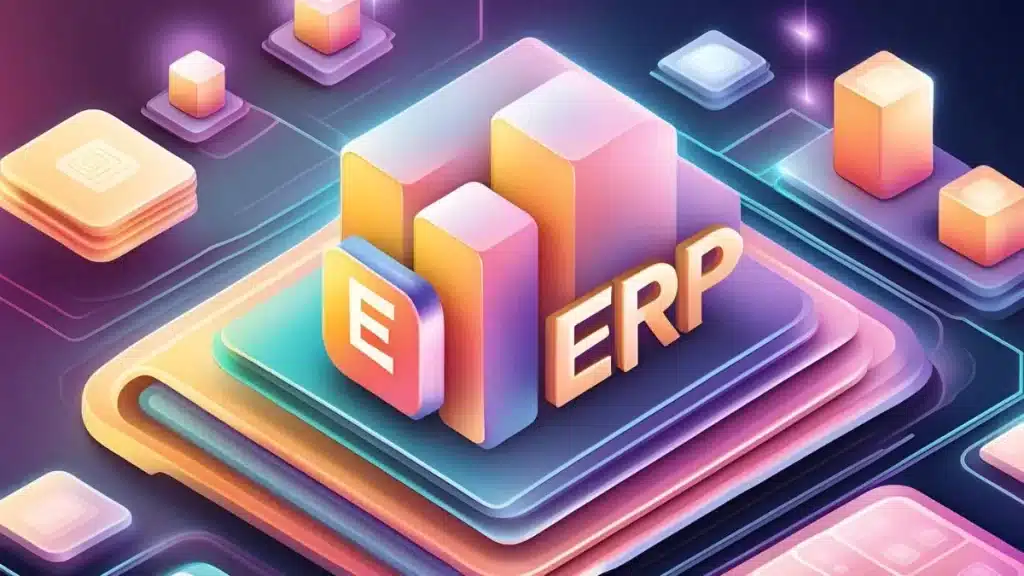The Philippines is leading the Asia-Pacific Enterprise Resource Planning (ERP) market. Therefore, ERP systems are indispensable tools for businesses seeking to enhance operational efficiency and streamline processes. These systems integrate functional areas such as finance, human resources, and supply chain management into a unified platform.
However, selecting the right ERP modules presents significant challenges. Many companies have faced financial losses due to choosing an unsuitable system. Additionally, an inappropriate choice can leave a company with incomplete or mismatched ERP modules, severely hindering efficiency and productivity.
Given the diverse needs and strategic goals of different businesses, it is essential to understand which ERP modules are best suited to your business’s objectives. Each module focuses on a specific area of business operations, providing tailored solutions that can profoundly impact productivity and profitability.
This article will explore the top 10 ERP modules, highlighting the benefits each can offer your business. From enhancing financial transparency to optimizing inventory and production management, this guide will provide a comprehensive overview of how each module functions and its potential impact on your operations.
Key Takeaways
|
Table of Contents

What are ERP Modules and Their Benefits for Businesses?
Modules of ERP are specialized components of an ERP software, each designed to handle different aspects of business operations. These modules work by centralizing and integrating various business processes to form a cohesive system.
ERP modules offer a range of benefits that can significantly enhance business operations, which include:
- Cost reduction: ERP modules help lower operational costs by streamlining operations and reducing the need for manual intervention. Efficiency gains from automation also contribute to reduced overhead and better resource management.
- Integration and automation: ERP modules integrate various business processes, reducing manual labor and minimizing errors. This integration ensures efficient data flow across departments, enhancing operational efficiency and accuracy.
- Real-time visibility: They provide real-time data across various departments, enabling timely and informed decision-making. This visibility into operations helps managers and executives make better strategic decisions.
- Improved regulatory compliance: ERP management modules help businesses maintain compliance with relevant industry regulations and standards through advanced tracking and automated documentation capabilities.
- Enhanced reporting: Automated reporting features enable businesses to generate detailed reports effortlessly. These reports provide valuable insights into various business aspects, aiding in performance analysis and strategic planning.
ERP package modules are the backbone of an effective business management system. By leveraging each module’s specific functionalities, businesses can enhance efficiency, improve responsiveness to market conditions, and ultimately drive success.
10 Most Important ERP Modules
Each module of ERP software focuses on a specific area, ensuring that all parts of the business can function optimally. Here, we will explore the 10 most important ERP modules, detailing their roles, functionalities, and how they contribute to a seamless business operation.
1. Sales management
Sales teams often struggle with disorganized lead management, inconsistent follow-ups, and poor visibility into the sales pipeline, which results in lost sales opportunities and inefficiency in reaching targets. Additionally, the absence of a centralized data system can lead to disjointed customer interactions and a lack of strategic insights into sales trends.
The sales management module is designed to streamline and enhance all aspects of the sales process, from lead generation to closing deals and managing customer accounts. It automates sales tasks such as order processing, customer tracking, and performance monitoring, providing a comprehensive view of sales activities.
Check out our list of the best sales management software in the Philippines for your reference when choosing the right module or software according to your business’ needs.
2. Inventory management
Inefficient inventory tracking can lead to critical issues such as overstocking, which ties up capital in unsold goods, or stockouts, resulting in lost sales and dissatisfied customers. Moreover, managing inventory across multiple locations adds complexity and increases the risk of errors in stock-level calculations.
Essential for managing stock levels, the inventory management module tracks stock movements, manages reorder points, and optimizes inventory holding costs. It supports various inventory valuation methods and provides real-time insights into inventory status, helping prevent overstocking or stockouts.
3. Accounting
Manually managing financial records is not only labor-intensive but also prone to errors, which can lead to financial discrepancies and compliance issues. Furthermore, delayed financial reporting can impede timely decision-making, affecting the overall agility of the business.
The financial ERP accounting module is fundamental for managing all financial aspects of a business. It automates essential financial tasks such as tracking general ledgers, managing accounts payable and receivable, conducting financial consolidations, and producing detailed financial statements.
4. Procurement
Conventional procurement processes are often fraught with inefficiencies, from slow manual approvals to poor vendor performance tracking. These can lead to potential supply chain disruptions and increased purchasing costs.
The procurement module simplifies the complexities of purchasing processes. It automates tasks from vendor selection and contract management to purchase order processing and payment scheduling.
5. Manufacturing
Manufacturers often struggle with production inefficiencies, such as excessive machine downtime, resource underutilization, and quality control issues, which can significantly impact production costs and product quality.
The manufacturing module supports the entire manufacturing process from planning and scheduling to execution and analysis. It helps manage product design, production planning, shop floor operations, and quality control.
If you are interested in learning more about the necessary pricing for ERP modules, click on the banner below to view HashMicro ERP’s pricing scheme.

6. Warehouse management
Common issues in warehouse management include inaccurate inventory data, inefficient layout leading to prolonged picking times, and challenges in handling returns. These inefficiencies can increase operational costs and affect customer satisfaction.
The warehouse module is integral to optimizing logistics and distribution processes within warehouses. It helps manage and control operations from receiving goods to their storage and eventual shipment. Key features include managing bin locations, zone picking, and efficient material handling techniques that minimize human error and increase productivity.
7. Supply chain management
Supply chains are often disrupted by unpredictable demand fluctuations, inefficiencies in inventory and transportation management, and poor collaboration between different stakeholders. These can lead to increased costs and reduced responsiveness to market changes.
The supply chain management module provides a comprehensive solution for managing the end-to-end logistics of supply chain activities. It encompasses supplier and vendor management, demand forecasting, procurement planning, and transportation management.
8. Project management
Project delays and cost overruns are common due to poor project planning, inadequate resource allocation, and lack of real-time project monitoring. These issues can jeopardize project success and impact the business’s ability to meet client expectations.
The project management module assists businesses in overseeing complex projects from inception to completion. It provides tools for detailed scheduling, resource allocation, budget management, and risk assessment. Features like Gantt charts, critical path analysis, and real-time project tracking allow project managers to control project timelines, costs, and resources.
9. Customer relationship management
Businesses often suffer from fragmented customer data, inconsistent customer service, and ineffective marketing strategies, which can lead to decreased customer loyalty and revenue loss.
The Customer Relationship Management (CRM) module integrates sales, marketing, and customer support functions into a single system. Features like sales force automation, customer support ticketing, voice of the customer program, and digital marketing tools enable personalized communication and service.
10. Human resource management
HR tasks such as recruiting, managing employee records, and ensuring compliance with labor laws are often conducted manually, leading to inefficiencies and potential errors. The lack of automated tools for performance management and employee engagement can also impact overall workforce productivity.
The Human Resource Management (HRM) module provides comprehensive tools for managing all aspects of human resources function, including recruitment, onboarding, payroll, benefits management, performance evaluations, and employee development.
Also read: Exploring the History and Evolution of ERP Systems
Selecting the Right ERP Modules for Your Business
Selecting the right ERP modules for your business is a crucial decision that can significantly impact your business’s efficiency. Here’s how businesses can approach the selection of ERP modules to ensure optimal results:
- Understand your business needs: Analyze each department’s processes and challenges to identify critical areas for improvement. This will help you prioritize which modules are essential.
- Evaluate module functionalities: Explore the specific features of each ERP module to ensure they match your business requirements. Focus on scalability and the ability to adapt to future needs.
- Consider integration capabilities: Choose modules that integrate seamlessly with each other and with existing systems to ensure smooth data flow and communication across the business.
- Look for flexibility and customizability: Opt for modules that offer customization options to adapt to your business’s evolving demands and processes, ensuring long-term usability and relevance.
- Assess vendor support and training: Ensure the ERP vendor provides comprehensive support and training to facilitate effective implementation and use, minimizing potential disruptions.
By carefully evaluating these factors, businesses can select the ERP modules that best fit their needs and contribute to streamlined operations and strategic growth. The right ERP functions can improve operations and support informed decision-making.
Conclusion
Selecting the right ERP modules is essential to optimize business operations. With the right ERP system, businesses can streamline workflows, enhance efficiency, and foster better decision-making across all departments. It is crucial to select the ERP modules that not only fit the company’s current needs but also can grow with the business.
HashMicro ERP solutions offer an all-in-one system designed to meet the diverse needs of modern businesses. Whether you are looking to improve your financial management, optimize your supply chain, or better manage your human resources, HashMicro provides a scalable and integrated approach that covers all crucial aspects of your operations.
Discover how HashMicro ERP solutions can streamline your business processes and drive growth. Let HashMicro be your partner in achieving operational excellence and long-term success. Try the free demo now!
FAQ about ERP Modules
-
What are the three common types of ERP?
There are three main types of ERP systems, each operating with different deployment models. The most common types are cloud ERP, on-premise ERP, and hybrid ERP.
-
How does ERP work?
ERP systems integrate numerous business processes and facilitate data flow between them. By gathering a company’s shared transactional data from various sources, ERP systems eliminate data duplication and ensure data integrity.
-
Why do we need an ERP?
We need an ERP system to integrate and streamline business processes, improve data accuracy, enhance decision-making, and boost overall efficiency and productivity across a business.

























